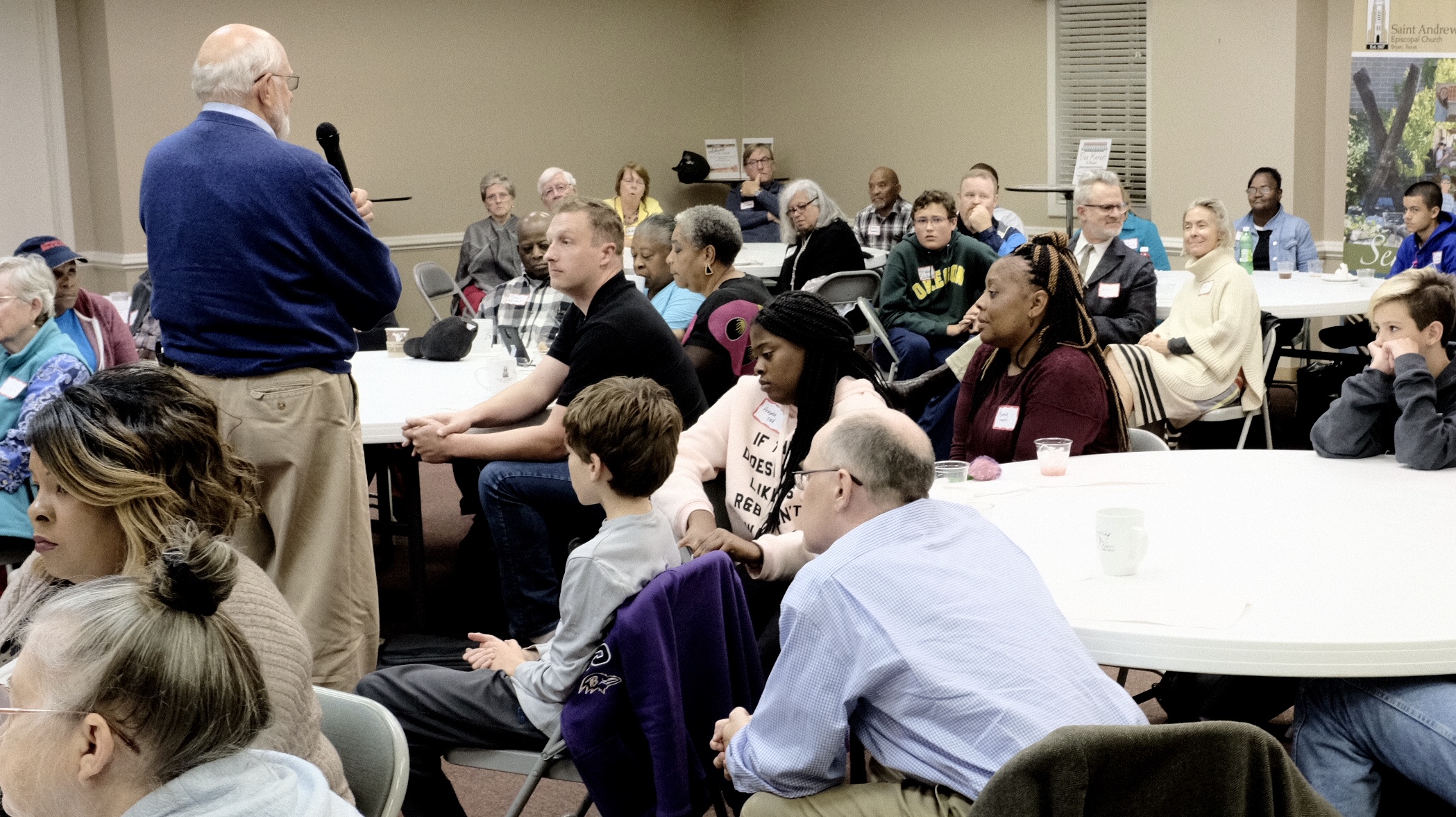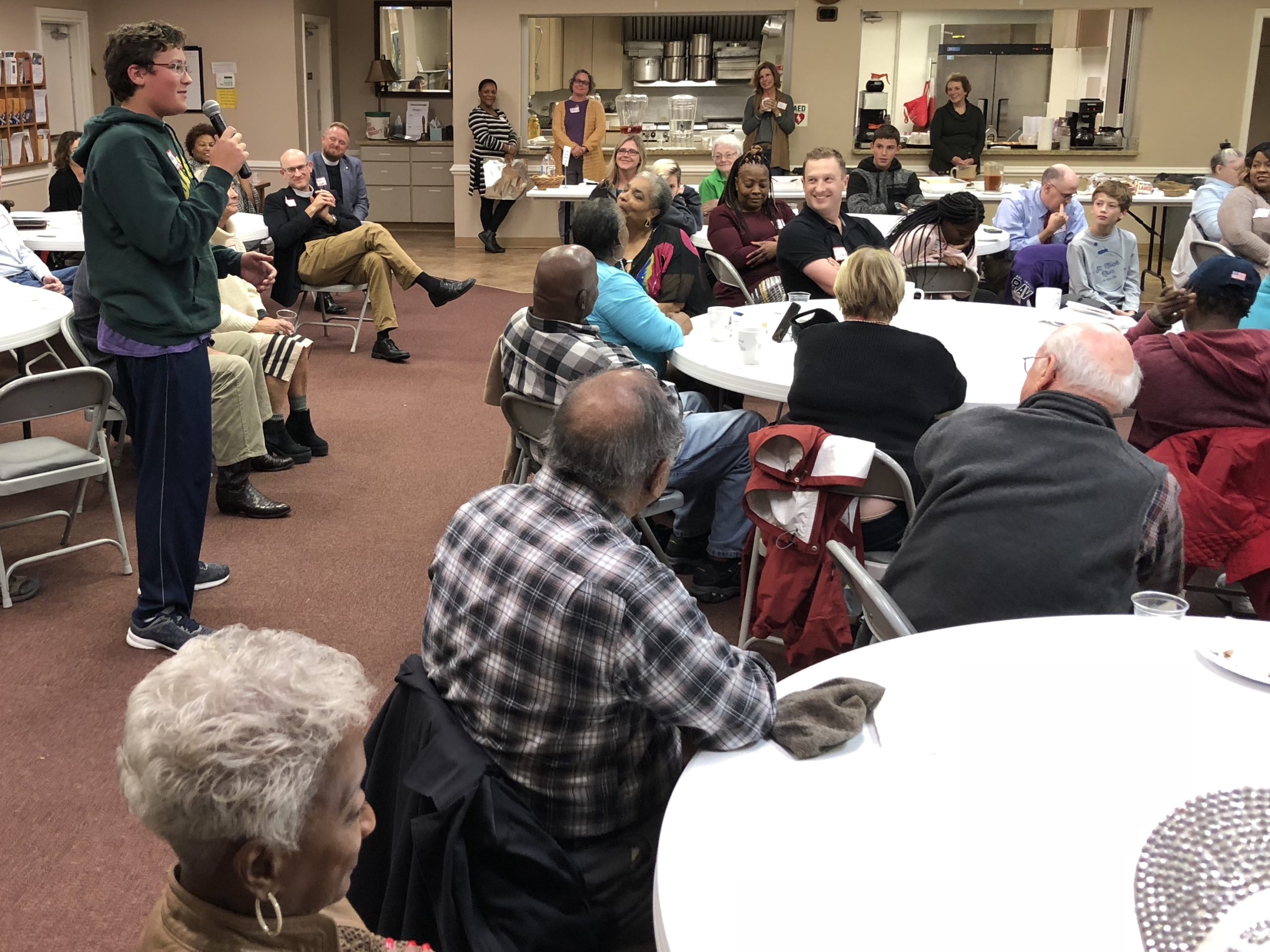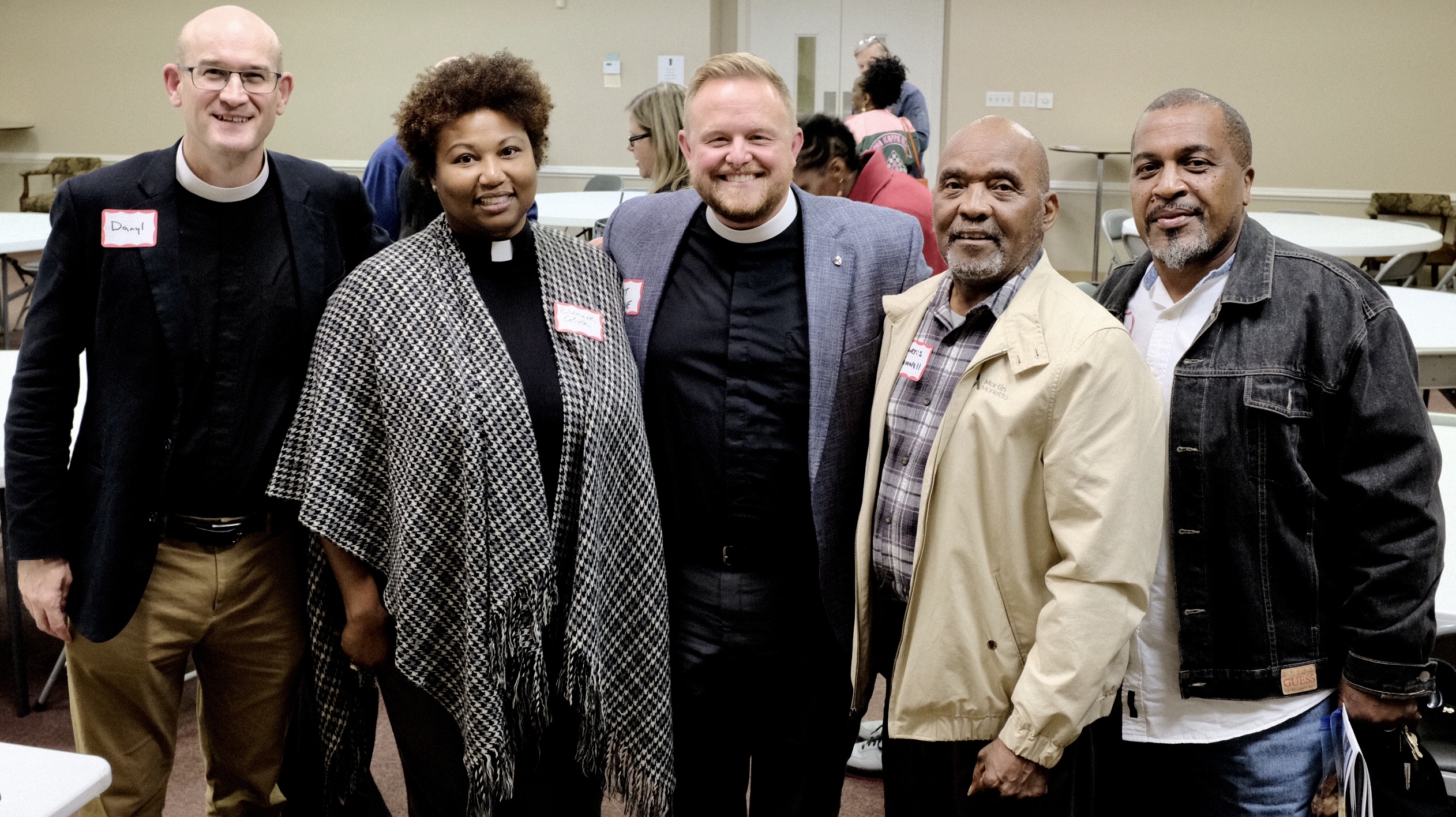

By Eric Moen
EHF Congregational Engagement Officer
In the Christian tradition, three elements naturally go well together — scripture, a meal and dialogue. This has worked well in the liturgy of the church for a few thousand years, and it works well for growing closer in relationship and in caring for one another in the community.
St. Andrew’s Episcopal Church in Bryan has been using this formula in a racial reconciliation partnership with several nearby congregations. In June, we shared Race, Faith, Stories, Us that tells the story of why and how these congregations came together to study scripture, share stories, and learn about one another.
“I think it’s a huge issue in race, that in our communities we don’t have a lot of natural meeting places, we’re so segregated,” said The Rev. Mary Lenn Dixon. “Our purpose and therefore our hope, is that in this time of fractured communities we start building bridges.”
It is the church who can provide these natural meeting places where the work of being together continues.

In October, St. Andrew’s hosted an EHF-sponsored screening of the documentary film, Traces of the Trade and the facilitated dialogue that followed. Dain Perry, who is in the film, and his wife Constance set the tone for the evening and facilitated the dialogue.
“Until we talk about the issue of race and racism and until we learn how it came about in this country and how it is affecting people today in such terribly negative ways, we’ll never succeed in overcoming racism,” shared Perry.
For many in the room, these are eye-opening and soul searching conversations.
“This gathering for fellowship and a common concern was very encouraging,” one participant from the screening shared. “The documentary was absolutely excellent walking us through the issues. And thus modeling our own journey into this painful past, which we now ‘own’ regardless of whether we have any direct family connection to it or not.”
“We must continue to educate ourselves through films like this and community discussion,” said another participant. “Putting the ugly on the table takes away the power of silence.”
The Rev. Matt Stone, Curate from St. Andrew’s has been part of the leadership of the Bible study from the beginning and was the convener of the Traces of the Trade event.
“It was the most diverse room that we had found ourselves in, in a long time” Stone said. “And I think it was true for everyone gathered. It gave us a snapshot of what heaven is like and what our work could become in our community.”
Stone said that after hearing about the history of the DeWolfe family in New England from the Traces of the Trade film, many said their curiosity was sparked about the story in Bryan around race, slavery and atrocities.
“What are those stories that we might be able to unearth together?” Stone asked.
The one unified comment that resonated clearly from most people following the event was, “What comes next?”

In November, Rev. Stone and his co-leaders the Rev. Dr. Dan De Leon, Friends Congregational Church, College Station, and the Rev. Eleanor Colvin, First United Methodist Church, College Station designed and hosted a follow up dinner at the Brazos Valley African American Museum (BVAAM) where everyone began the exploration of the “what’s next” question.
The group of 31 that gathered in late November brainstormed ideas for deepening the shared work and dialogue. They identified many additional people who needed to be part of the community conversation, including partners from the Hispanic community, other faith leaders and faith communities, law enforcement, civic and elected leaders, young people and young African-American men, university leaders, and students.
The leadership group focused on dinner gatherings, family story sharing and a book club. There was conversation about walking together in the city-wide Martin Luther King march in January.
The group also expressed an interest wanting to do more than just activities. However, Stone and the other clergy recognize that time together for building trust is critical.
“There would have to be some deep relationships formed before there being a sense of tackling something structural,” Rev. Stone said. “That’s something we are processing and thinking about. We’ll have conversation about the time it takes to build the trust and share what the next meeting is going to be about.”
The Revs. Stone, Colvin and De Leon plan to meet again later this month to have this discussion and to plan their next steps for the growing community.
To learn more about approaches to racial reconciliation in your congregation and community, contact EHF’s Congregational Engagement team.